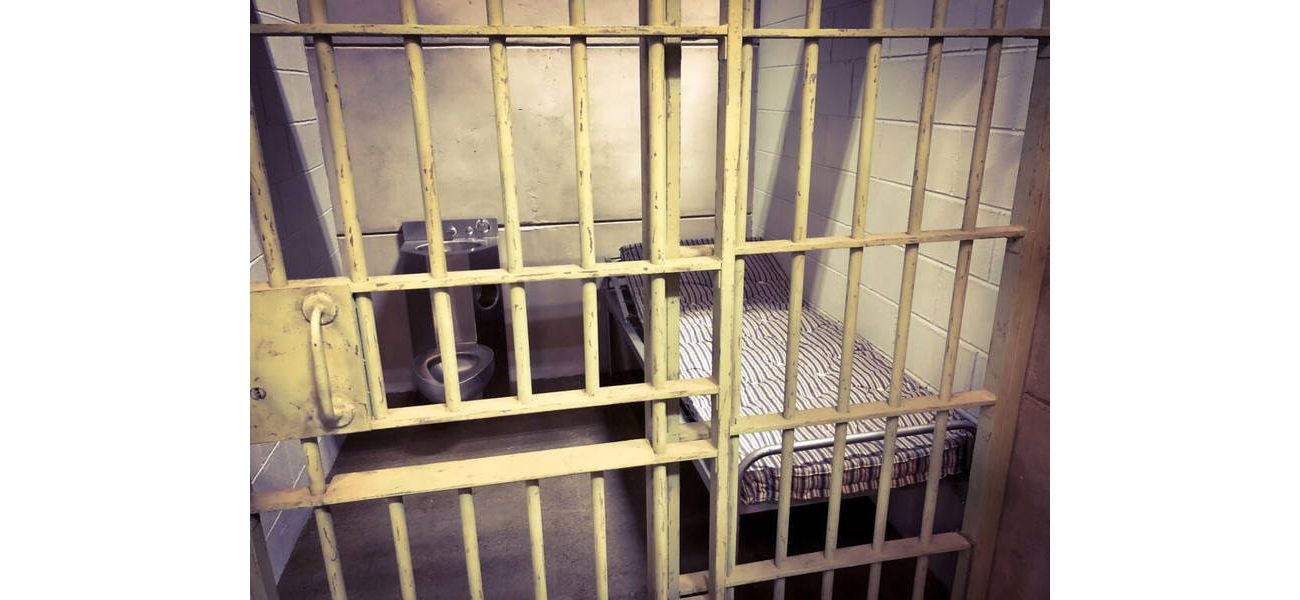A report found that 'pay to stay' prison debt disproportionately affects black women, creating a heavier burden for them.
Prison debt disproportionately affects Black women, who are more likely to incur costs when entering and staying in prisons.
July 27th 2025.

It's no secret that there is a significant racial disparity in the number of Black people incarcerated in prisons and jails in the United States. However, a recent report has shed light on another burden that falls disproportionately on Black individuals within the criminal justice system: prison debt.
This debt is accumulated by individuals when they enter and stay in prisons, and it particularly affects Black women. The debt often stems from expenses such as room and board and medical costs while incarcerated. According to Axios, this debt traps these women in cycles of poverty because they are unable to pay it back.
The Prison Policy Initiative has confirmed that 37% of inmates in local jails and state prisons identify as Black. This means that the responsibility of paying off prison debt often falls on the shoulders of Black women who are left outside the prison walls.
Currently, 48 states allow for the charging of incarcerated individuals with "pay to stay" fees, and 42 states have legalized room and board charges. However, even with the possibility of these fees being deducted from wages earned from prison jobs, the low pay is often not enough to cover the costs.
Upon release, individuals are expected to repay these debts, or their families are expected to cover the expenses. However, once released, wages significantly drop, especially for women. A survey by the Fine and Fees Justice Center revealed that 83% of those paying off these fees are Black women.
Advocacy group Campaign Zero has collected data on this lesser-known issue of prison debt and its impact on Black families and other families of color. "We were the first to bring attention to this issue - people were talking about mass incarceration, but no one was talking about families losing their college funds and inheritances to pay off this debt," said Brittany Friedman, a sociologist at USC and consultant for Campaign Zero.
The practice of charging incarcerated individuals for their own imprisonment was implemented in the 1970s as a way to reduce the costs of jails within state budgets. This placed the burden of the cost of prison on the prisoner and their families. These fees go beyond room and board and can also include public defenders, probation supervision, and even phone calls.
As a result, these debts often pile up, and it falls on probation officers or debt collectors to retrieve the money. However, this method ends up using taxpayer dollars to recover the fees, making the process inefficient and raising ethical concerns. In fact, it has been found that these fees end up costing more than they bring in. This has led to some states enacting new legislation to eliminate or waive these fees, but in the meantime, they continue to disproportionately impact Black families.
This debt is accumulated by individuals when they enter and stay in prisons, and it particularly affects Black women. The debt often stems from expenses such as room and board and medical costs while incarcerated. According to Axios, this debt traps these women in cycles of poverty because they are unable to pay it back.
The Prison Policy Initiative has confirmed that 37% of inmates in local jails and state prisons identify as Black. This means that the responsibility of paying off prison debt often falls on the shoulders of Black women who are left outside the prison walls.
Currently, 48 states allow for the charging of incarcerated individuals with "pay to stay" fees, and 42 states have legalized room and board charges. However, even with the possibility of these fees being deducted from wages earned from prison jobs, the low pay is often not enough to cover the costs.
Upon release, individuals are expected to repay these debts, or their families are expected to cover the expenses. However, once released, wages significantly drop, especially for women. A survey by the Fine and Fees Justice Center revealed that 83% of those paying off these fees are Black women.
Advocacy group Campaign Zero has collected data on this lesser-known issue of prison debt and its impact on Black families and other families of color. "We were the first to bring attention to this issue - people were talking about mass incarceration, but no one was talking about families losing their college funds and inheritances to pay off this debt," said Brittany Friedman, a sociologist at USC and consultant for Campaign Zero.
The practice of charging incarcerated individuals for their own imprisonment was implemented in the 1970s as a way to reduce the costs of jails within state budgets. This placed the burden of the cost of prison on the prisoner and their families. These fees go beyond room and board and can also include public defenders, probation supervision, and even phone calls.
As a result, these debts often pile up, and it falls on probation officers or debt collectors to retrieve the money. However, this method ends up using taxpayer dollars to recover the fees, making the process inefficient and raising ethical concerns. In fact, it has been found that these fees end up costing more than they bring in. This has led to some states enacting new legislation to eliminate or waive these fees, but in the meantime, they continue to disproportionately impact Black families.
[This article has been trending online recently and has been generated with AI. Your feed is customized.]
[Generative AI is experimental.]
0
0
Submit Comment





